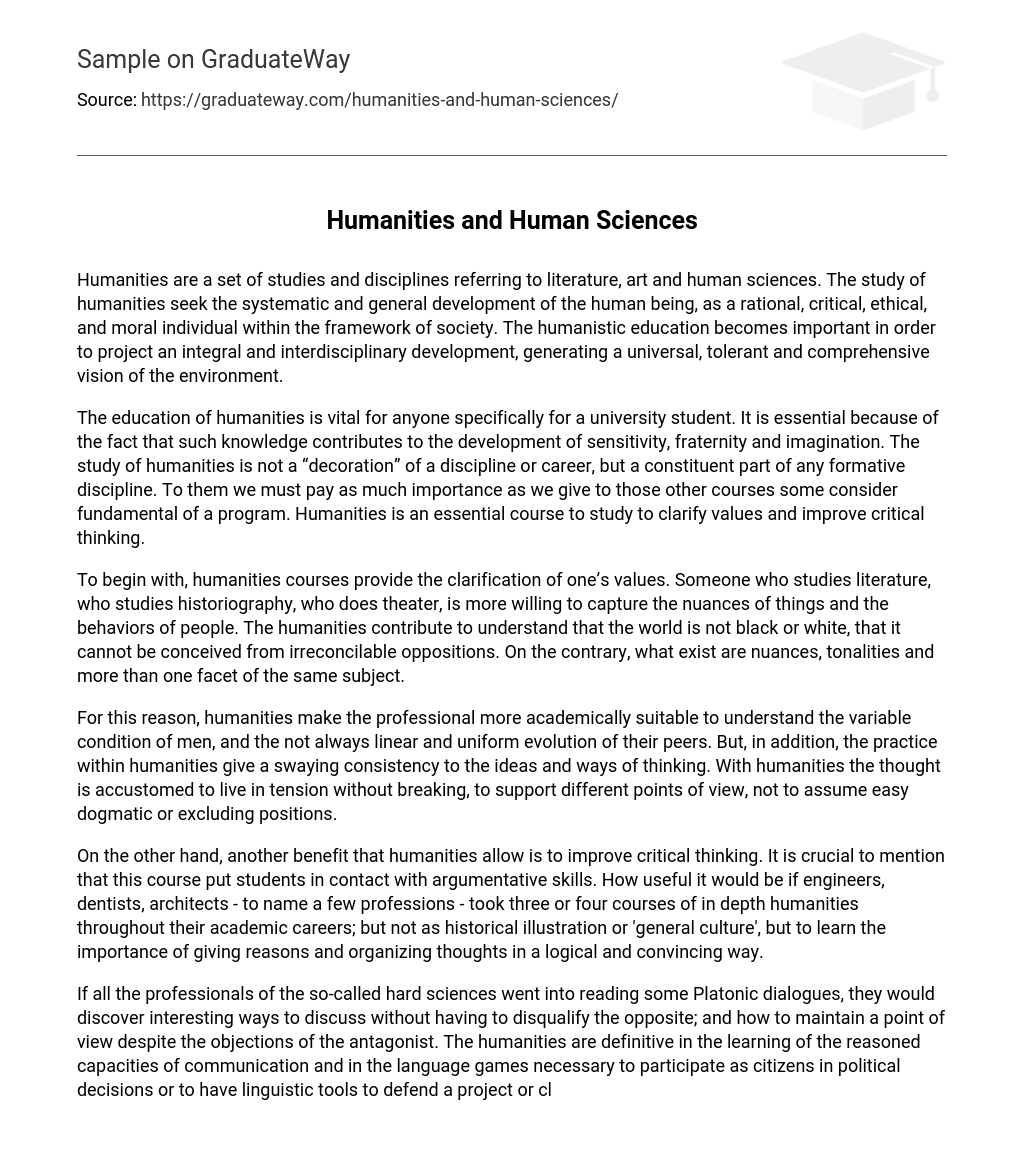Humanities are a set of studies and disciplines referring to literature, art and human sciences. The study of humanities seek the systematic and general development of the human being, as a rational, critical, ethical, and moral individual within the framework of society. The humanistic education becomes important in order to project an integral and interdisciplinary development, generating a universal, tolerant and comprehensive vision of the environment.
The education of humanities is vital for anyone specifically for a university student. It is essential because of the fact that such knowledge contributes to the development of sensitivity, fraternity and imagination. The study of humanities is not a “decoration” of a discipline or career, but a constituent part of any formative discipline. To them we must pay as much importance as we give to those other courses some consider fundamental of a program. Humanities is an essential course to study to clarify values and improve critical thinking.
To begin with, humanities courses provide the clarification of one’s values. Someone who studies literature, who studies historiography, who does theater, is more willing to capture the nuances of things and the behaviors of people. The humanities contribute to understand that the world is not black or white, that it cannot be conceived from irreconcilable oppositions. On the contrary, what exist are nuances, tonalities and more than one facet of the same subject.
For this reason, humanities make the professional more academically suitable to understand the variable condition of men, and the not always linear and uniform evolution of their peers. But, in addition, the practice within humanities give a swaying consistency to the ideas and ways of thinking. With humanities the thought is accustomed to live in tension without breaking, to support different points of view, not to assume easy dogmatic or excluding positions.
On the other hand, another benefit that humanities allow is to improve critical thinking. It is crucial to mention that this course put students in contact with argumentative skills. How useful it would be if engineers, dentists, architects – to name a few professions – took three or four courses of in depth humanities throughout their academic careers; but not as historical illustration or ‘general culture’, but to learn the importance of giving reasons and organizing thoughts in a logical and convincing way.
If all the professionals of the so-called hard sciences went into reading some Platonic dialogues, they would discover interesting ways to discuss without having to disqualify the opposite; and how to maintain a point of view despite the objections of the antagonist. The humanities are definitive in the learning of the reasoned capacities of communication and in the language games necessary to participate as citizens in political decisions or to have linguistic tools to defend a project or claim right without resorting to physical violence or arbitrary intrigue.
Finally, the humanities are a set of knowledge that helps to have a common language to understand each other despite the differences in language, ethnicity or religion. Without it there would be loss of common references that allow dialogues with foreigners or with distant generations in time. If we have that common meter of the humanities, that sensitive translator of the arts, we can have the opportunity to see ourselves as brothers of the same tradition or of a similar symbolic inheritance.
This can be an advantage; being able to join a conversation about a painting by Rembrandt or tune into Boccherini’s music or converge on the moral conflicts of a Thomas Mann novel. And although some people think society is separated by language or closed codes of a profession, the education of humanities will definitely allowed them, in an airport or a city cafe, to engage in a dialogue from which shared affinities and tastes arose.





